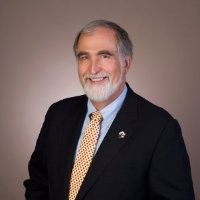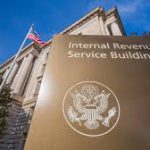I will always say that the most important plan provider a plan sponsor can hire is a third party administrator. I had the benefit of talking to John Blossom Jr., who has been operating a really good TPA for over 40 years and is always ahead of the curve when it comes to changes in the retirement plan business.
Q: How did you start in the retirement plan business?
A: In 1968, as a struggling, young insurance agent I had the opportunity to meet the number one producer with New England Life. His success was based on retirement plan sales and service. I still remember him saying, “There isn’t anything I am doing that you can’t do just as well”. I began studying everything I could find about retirement plans. Two years later I was an expert in a field with little competition.
Q: You started ABG 40 years ago, what’s the biggest difference you’ve seen in the retirement plan business?
A: Our firm started prior to ERISA. Life insurance companies were the primary repository of knowledge and manufacturers of products for retirement plans. Mutual funds held a small share of the market. Fiduciary was an unknown concept. Ethics, or lack thereof, ruled business operations.
Today’s focus on successful retirement outcomes, fiduciary governance, and the impact of technology have brought major change. Today’s drive for low cost: low cost investments, low cost administration and low cost advisory service will transform the industry over the next few years.
Q: How has fee disclosure impacted your retirement plan business?
A: We were pioneers in fee disclosure. I remember how astounded our prospects were when we helped them understand what they were actually paying. They felt betrayed by their incumbent advisors and were very open to change. So, disclosure is our best friend.
Q: Do financial advisors and their plan sponsor clients have a better understanding of the need to hire a good TPA?
A: Unfortunately, many advisors don’t understand the importance of a business partner relationship with a “good TPA”. Some view the TPA/Recordkeeper as a commodity and think that lower TPA/Recordkeeper administration fees will help justify unrealistic advisory fees when reviewed on an “all in” cost basis. Of course, that doesn’t work well as plan sponsors become better informed. Plan sponsors rarely understand the importance of a “good TPA” until they have experienced an ineffective TPA business model.
Q: Do you think the fiduciary rule will impact your business as a TPA?
A: We have always accepted full responsibility for our actions and avoided conflicts of interest so the major impact on our practice is it will bring our competitors up to equal standards with us. I expect that will increase the disclosed costs of many providers and distribution channels. As payments for shelf space and other hidden costs are eliminated by regulation and litigation, the playing ground becomes level. Plan participants will benefit and “no games” providers will gain market share.
Fiduciary service to exiting participants who choose Rollovers will be a challenge to those who are driven by hidden, high compensation. To us, it means better documentation and full disclosure that shows we are serving in the best interest of our clients.
Q: As a TPA that offers advisory services, do you see the fiduciary rule a s a postive type or negative step for business?
A: I think my answer to your previous question pretty well answers this. We have never been more excited about the opportunities for advisors who embrace their fiduciary status and partner with others of like mind.
Q: Do you believe that revenue sharing is going to be a thing of the past or is there still some value to defray administrative costs?
Revenue sharing was invented by financial institutions as a way to increase their revenue without disclosure. It has been perpetuated as a way to hide the true cost of plan operation from participants and plan sponsors alike. Revenue sharing creates a secret subsidy of operational cost that is usually generated unequally among participants based on their investment choices.
So, do I think revenue sharing should be a “thing of the past”. Absolutely! If I ruled the SEC, I would require every fund that provides revenue sharing to offer an institutionally priced zero revenue sharing class of their funds. And, of course, the zero class shares should never cost more than retail share cost minus revenue sharing.
Q: Do you think ERISA 3(16) services will further catch on as an offering that a TPA can provide?
A: I believe that many providers will provide limited ERISA 3(16) services to their clients. Most TPA’s stand behind the services they provide, so I think it is only evolutionary to accept fiduciary responsibility for things like loans, hardships, eligibility, 5500 prep and filing….and to increase fees accordingly.
I don’t see much growth of full ERISA 3(16) plan service, taking complete fiduciary responsibility for all plan operations as the ERISA plan fiduciary. The wildcard in my thinking is, “what happens if the DOL, or congress, allows state and municipal entities, or others, to offer plans without the fiduciary baggage required of private sector providers”.
Q: Payroll companies who serve as a TPA, do you have a difficult time in communicating the value proposition of a TPA that is an expert in plan design?
A: I don’t believe that providing payroll service and availability of expert plan design help are mutually exclusive. The key is full disclosure of what the services are, who delivers the service, what their availability is, what their credentials are, and fully disclosed charges. We offer payroll service to plan sponsors who want this vertically integrated service model.
There are advantages to the payroll service and retirement plan provider model. The key is which tail is wagging which dog?
Q: How can a plan provider or plan sponsor learn more about ABG Retirement Plan Services?
A: Our website: www.abgil.com offers complete information about who we are and what we do. Anyone who wants to tour our participant services can get there from the home page or can log in at www.abglogin.com. No codes or registration are required….just a click. And we enjoy the opportunity to answer questions on the telephone 800-242-2356.
Thanks, Ary. I enjoyed the opportunity to be interviewed by you.







